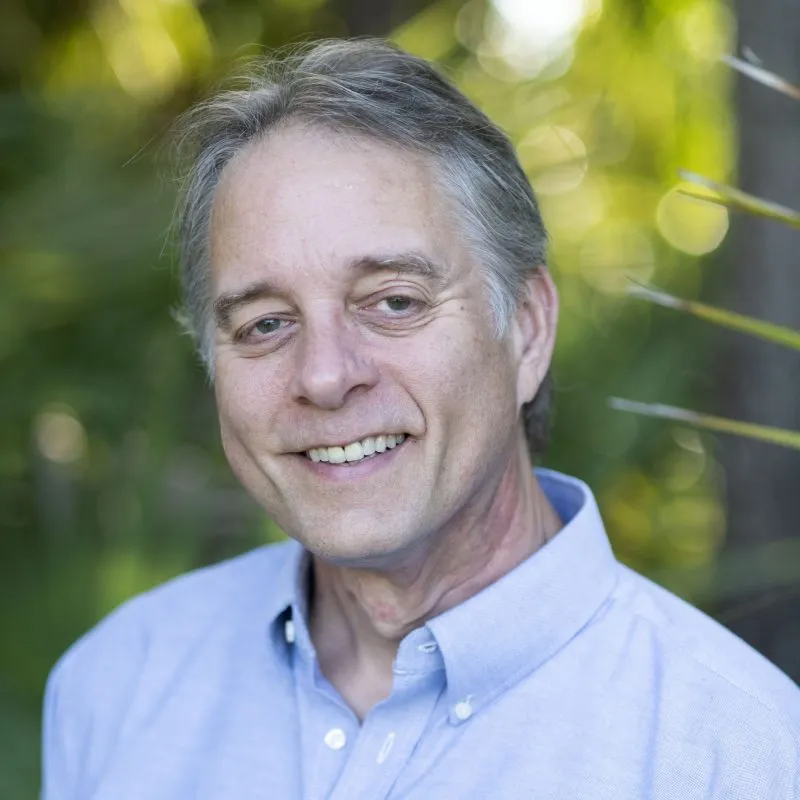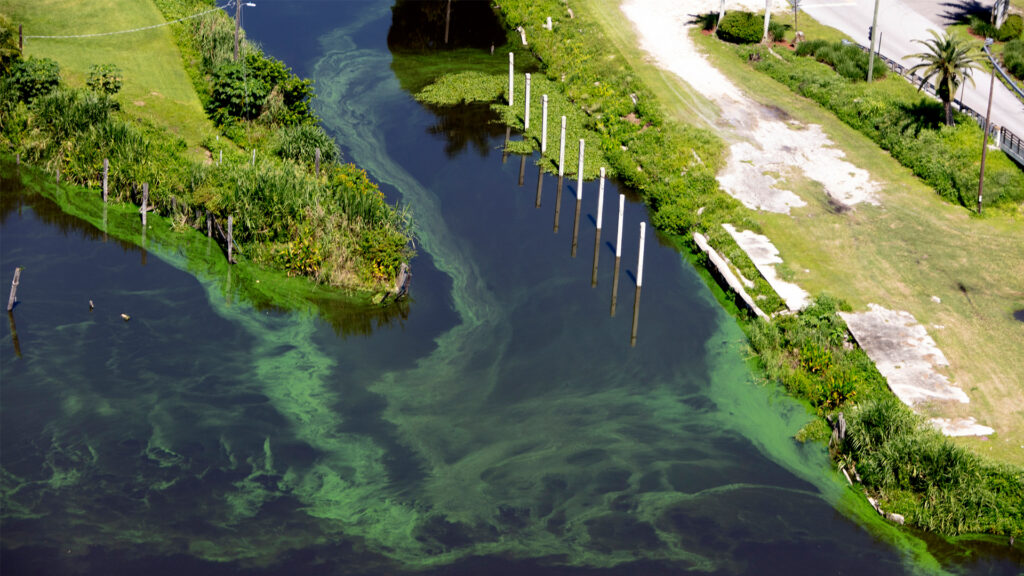By Autumn N. Bryan, FAU Center for Environmental Studies
The following is a Q&A conducted with Gil Smart, executive director of VoteWater. The nonprofit organization serves “as the voice and conscience of 22 million Floridians who recognize the importance of clean water to marine life, human life, and economic vitality.” Smart is also policy director for Friends of the Everglades, which is “dedicated to preserving, protecting, and restoring the only Everglades in the world.” This interview has been edited for length and clarity.
Tell us about your work at Friends the Everglades and VoteWater and what interested you in working for environmental nonprofits.

I spent more than 30 years as a newspaper columnist and an investigative reporter and I spent a lot of time writing about environmental issues, particularly after moving to Florida in late 2015. I took a job as a columnist with The Stuart News and that spring we had massive discharges from Lake Okeechobee and blue-green algae, which just decimated the community. I wound up writing a lot about that topic and I met the founders of this organization.
In 2021, I was approached to join the team. I started as policy director with Friends of the Everglades in March 2021. And then in December of that year, I was named executive director of BullSugar, now VoteWater. And so, as a policy director for Friends of the Everglades, one of my primary responsibilities for our legislative priorities is our Legislative Accountability Project.
I track all the legislation that is filed, I do thumbnail analysis of it, then we follow the progress of it and determine whether we need to weigh in (by) writing letters to legislators (and) trying to mobilize our supporters to do so. We’ve been going up to Tallahassee to lobby on behalf of or against some of this legislation.
We do live streams where we talk about what’s going on, we give a preview of what’s coming down the pike. And I participate with other conservation groups across the state. We talk about what’s come up and what people’s take on it, where the organization stands, and if we need to join forces to try to stop some of the bad legislation.
As a 501(c)(4) political organization, (VoteWater is) allowed to get into politics. We utilize some of this information and we politicize it. We talk about campaign contributions.
We are working on a big initiative called the Dirty Money Project where we are looking to follow the money special interests have given to legislators, how much they’ve given, how they give it primarily via PACs, or political action committees, and just how it buys influence and how that results in dirty water effectively. So we take what goes on from the policy side, and we weaponize it.
We get into political aspects of it and we’ve put out voter guides. We’ve advocated on behalf of or against candidates. Essentially VoteWater looks to get better politicians elected to enact better policy.
In what ways are people able to get involved in these legislative decisions?
The best thing people can do is weigh in, contact legislators and let them know where there are issues. Tell them whether you support it or oppose it.
When you call when you email, it gets their attention. Because they really do have to worry about what constituents think, what people think. There’s a lot of people who think, “Well, I’m just one person, I can’t really do anything.” Listen, there’s other people who care about these issues as well. And if you join the chorus, it’s going to make the chorus all that much louder.
That is the most impactful thing an individual can do. You don’t have to write a book. You don’t have to go into chapters and verses about why you oppose this. You just have to say, I oppose this (and) I want you to vote against this, or I think this is a great idea and I think you should vote for it. Add your voice to the chorus because the more people that do that, the better off we’re going to be.
How is your work affected by climate change, and what efforts can you see being dedicated toward climate change mitigation?
There are questions about how viable the CERP — Comprehensive Everglades Restoration Plan — still is. The plan passed 20 years ago and is the big blueprint for what we’re going to do but there’s questions about climate change reshaping everything. How do the plans we made 20 years ago hold up? How are they affected by climate change?
I see the whole issue of saltwater intrusion and coastal resiliency. The whole idea that there’s a lot of people who want to make it easier for people who’ve lost homes to hurricanes to rebuild, which sounds great on the surface, but what if some of those structures are located in hazard zones? Should we be rebuilding them?
There is a bill out there this year that wants to get the state and local communities to streamline their coastal permitting process. At a time with sea-level rise, we shouldn’t be rushing more things through, we should be taking our time and fully considering things.
The prevailing attitude here is just that we’re going to keep on keeping on, you know, we’re going to just do what we’ve always done, which is more building, more development, more pavement, more impervious surface, and we can’t do that. It’s not sustainable.
Do you see any more support coming your way or interest in the topic of the Everglades based upon the effects of climate change? Are these things that are happening in Florida, the obvious effects of global warming, making people more aware of environmental initiatives such as Friends of the Everglades and VoteWater?
There’s a lot of organizations working on restoration. I think everybody already recognizes the importance of the Everglades – everything from aesthetic value to economic drive to biodiversity. I think that as we see climate related impacts on the Everglades, organizations such as these are going to raise the alarm and will raise awareness of it.

We’re going to have to be pushing back against the forces that just want to keep on keeping on, as I said, you know, but I think awareness has increased, which is good, you know, and, you know, but you’ve got to fight off some of these threats.
The threats to the Everglades themselves are continuing to grow. I don’t understand why you would want to build homes right on the cusp of the Everglades Protection Area. I don’t understand how Miami-Dade commissioners can think it is OK to approve projects outside the urban development boundary. The attitude seems to be well, it’s fine. It’ll be fine. It’ll be fine. It’s not fine.
I hate to say, sometimes it takes a crisis to make people realize what’s actually at stake, but it’s true. It happens because people get lulled to sleep, because there’s so many other things in this world competing for our attention.
If we get more blue-green algae down here and people start to see it, people start to smell it, it starts to impact their lives. When people can’t take their boats out or put their kids in the water, they notice. I would like to live in a Florida where I don’t have to ask what’s in this water. Where I don’t have to worry that if my kids go swimming in the lagoon that they might get sick.
This Q&A was conducted by Autumn N. Bryan, a graduate student at Florida Atlantic University who is pursuing a master’s degree in the geoscience program. Bryan works as a research assistant and reporter for FAU’s Center for Environmental Studies, which manages and funds The Invading Sea. She previously worked as an intern for Friends of the Everglades. Editor’s note: This piece was corrected to adjust the date that Smart moved to Florida.
Sign up for The Invading Sea newsletter by visiting here. If you are interested in submitting an opinion piece to The Invading Sea, email Editor Nathan Crabbe at ncrabbe@fau.edu.



